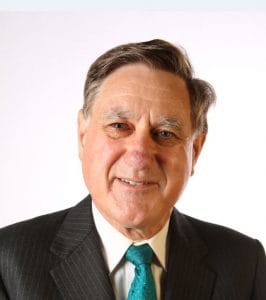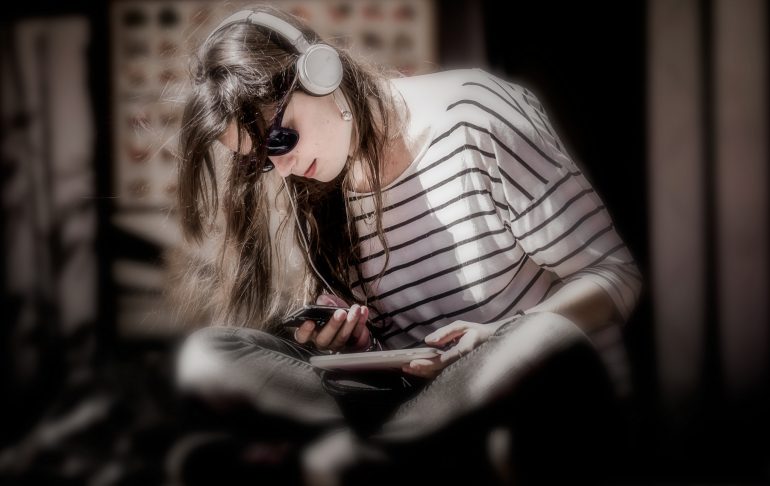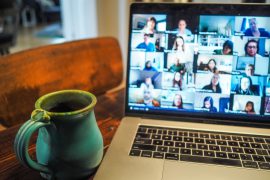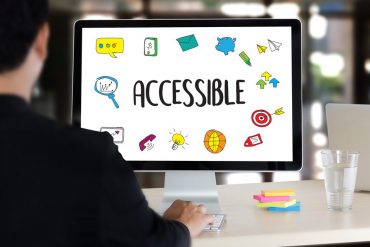 Legal history is part of our shared history of ideas. In this interview, Adjunct Professor Joe Campbell talks about his Legal History Podcast series and how this resource has allowed students, staff and legal practitioners a unique insight into the history that continues to shape the law we know today.
Legal history is part of our shared history of ideas. In this interview, Adjunct Professor Joe Campbell talks about his Legal History Podcast series and how this resource has allowed students, staff and legal practitioners a unique insight into the history that continues to shape the law we know today.
Prior to joining the University of Sydney, Joe Campbell was a judge of the Supreme Court of New South Wales where he sat as a first instance judge in the Equity Division, and as a judge of the Court of Appeal. Now an Adjunct Professor in the Sydney Law School, Joe teaches Equity and Interpretation to students enrolled in the Bachelor of Laws and the JD. Having taught Equity for three years Joe recognised the need for students to have better and deeper access to legal history. “The need for students to be exposed to legal history” is, says Joe, “absolutely critical for understanding what the current law is and the driving factors of the various doctrines of Equity”. Despite its importance, integrating this teaching and learning into the wider course was always difficult:
[…] it never fits very neatly with teaching the current substantive law. There was really never enough time to teach it properly, it was something that had a lot of intellectual interest in itself and I was trying to make sure students didn’t miss out on the opportunity to come in contact with this material.
It was this recognition of the importance of legal history within education that led Joe to write and produce Legal History Podcasts on Equity. The series is made up of thirteen short and accessible podcasts that allow students to peer into law’s past as shaped by Church, Kings, politics and scientific revolution. As Joe explains “it is by no means the sort of work that would be publishable scholarly work – it has no footnotes or other justification for the statements it makes. It was primarily intended to be a teaching aid that introduced students to a particular field of discourse […] very often, unless someone has something presented to them they don’t know whether it’s interesting or not.”
This idea for allowing students access to a potentially hidden part of the curriculum through podcasts came in part from Joe’s own personal experiences: “Before I was at the University, I was a judge and I would regularly walk to work and would listen to a podcast as I walked. And likewise when I came to the University, I walked and again listened to a podcast as I went.” This ability for students to download content to access anywhere at anytime is very important. Joe’s students, many who face long commutes, are now able to fill the “dead time” spent on buses, trains or car journeys with stories of the medieval Chancery or the effect that beliefs on the nature of human conscience had on judgement and equity. Recently, the podcasts have been made available to the Francis Forbes Society for Australian Legal History and the NSW Bar Association. What this demonstrates is that this kind of learning resource has value throughout an individual’s professional lifespan, long after they have graduated and qualified. This series provides students, staff and members of the legal profession with an opportunity to explore, access, and learn about legal history anywhere and anytime.
I don’t see why it’s not the sort of thing that anyone could do if they put their mind to it.
In making the podcasts Joe drew on the support and expertise of the Law School’s Educational Designer Cameron Murray and Education Innovation Officer Mai Stringer. “They taught me how to use the software in the first place. There were some times when, for instance, I would need to go back and re-record something and I’d end up with different volume levels of the two bits of the recording. So I would just ask them to adjust the levels and they would be able to do that.” Though producing a podcast series did require some consideration and support, Joe describes the process as fairly easy: “I don’t see why it’s not the sort of thing that anyone could do if they put their mind to it.” In short, this powerful combination of disciplinary and technical expertise has resulted in a powerful suite of learning resources that supports students, staff and members of the profession in their legal training and practice.
Tips for Podcasting in Your Subject:
Content
- Choose content that is less likely to change and can be re-used.
- Keep episodes as short as possible.
- Script what you want to say before you start recording.
- Cut out content if it is not appropriate for students. As a teaching aid the material does not need to be of the publishable scholarly nature that you would use in your research papers.
Recording and editing
- Draw on the support of other people around you – the educational designers in your faculty and members of the Educational Innovation team are there to help with equipment, software and training.
- Have a dry run and test out the recording first.
- Record in a quiet environment and use a high quality desktop microphone. Sound quality is important.
- Don’t worry about mistakes. If you do make a mistake stop, go back to the start of the sentence, and start again. You can always edit out mistakes later.
Publishing
- If possible make podcasts available to download and stream – students may want to use your content offline as a downloadable audio file.
Joe's Essential Podcasting Technologies
Echo 360 Recording Software | Audacity Editing Software | High Quality Desktop Microphone





